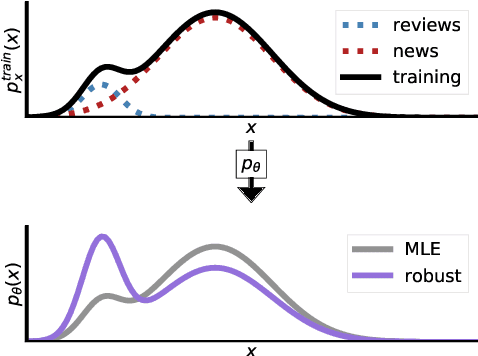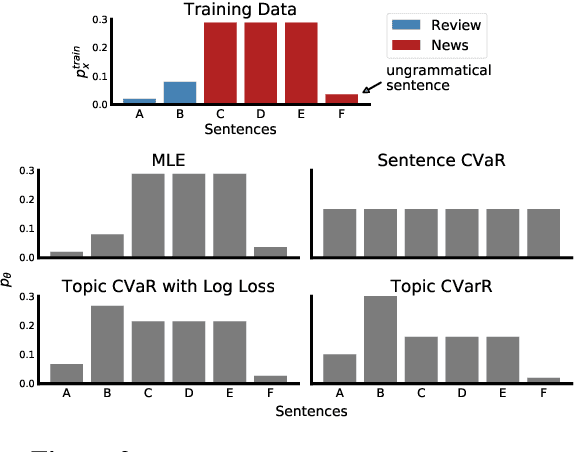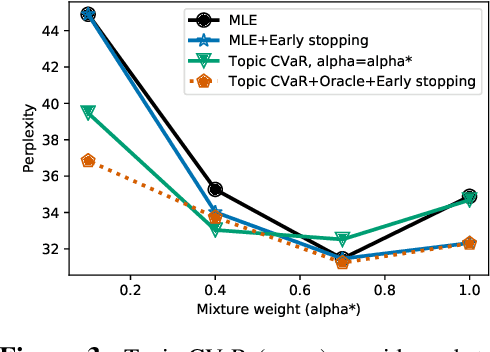Distributionally Robust Language Modeling
Paper and Code
Sep 04, 2019



Language models are generally trained on data spanning a wide range of topics (e.g., news, reviews, fiction), but they might be applied to an a priori unknown target distribution (e.g., restaurant reviews). In this paper, we first show that training on text outside the test distribution can degrade test performance when using standard maximum likelihood (MLE) training. To remedy this without the knowledge of the test distribution, we propose an approach which trains a model that performs well over a wide range of potential test distributions. In particular, we derive a new distributionally robust optimization (DRO) procedure which minimizes the loss of the model over the worst-case mixture of topics with sufficient overlap with the training distribution. Our approach, called topic conditional value at risk (topic CVaR), obtains a 5.5 point perplexity reduction over MLE when the language models are trained on a mixture of Yelp reviews and news and tested only on reviews.
 Add to Chrome
Add to Chrome Add to Firefox
Add to Firefox Add to Edge
Add to Edge